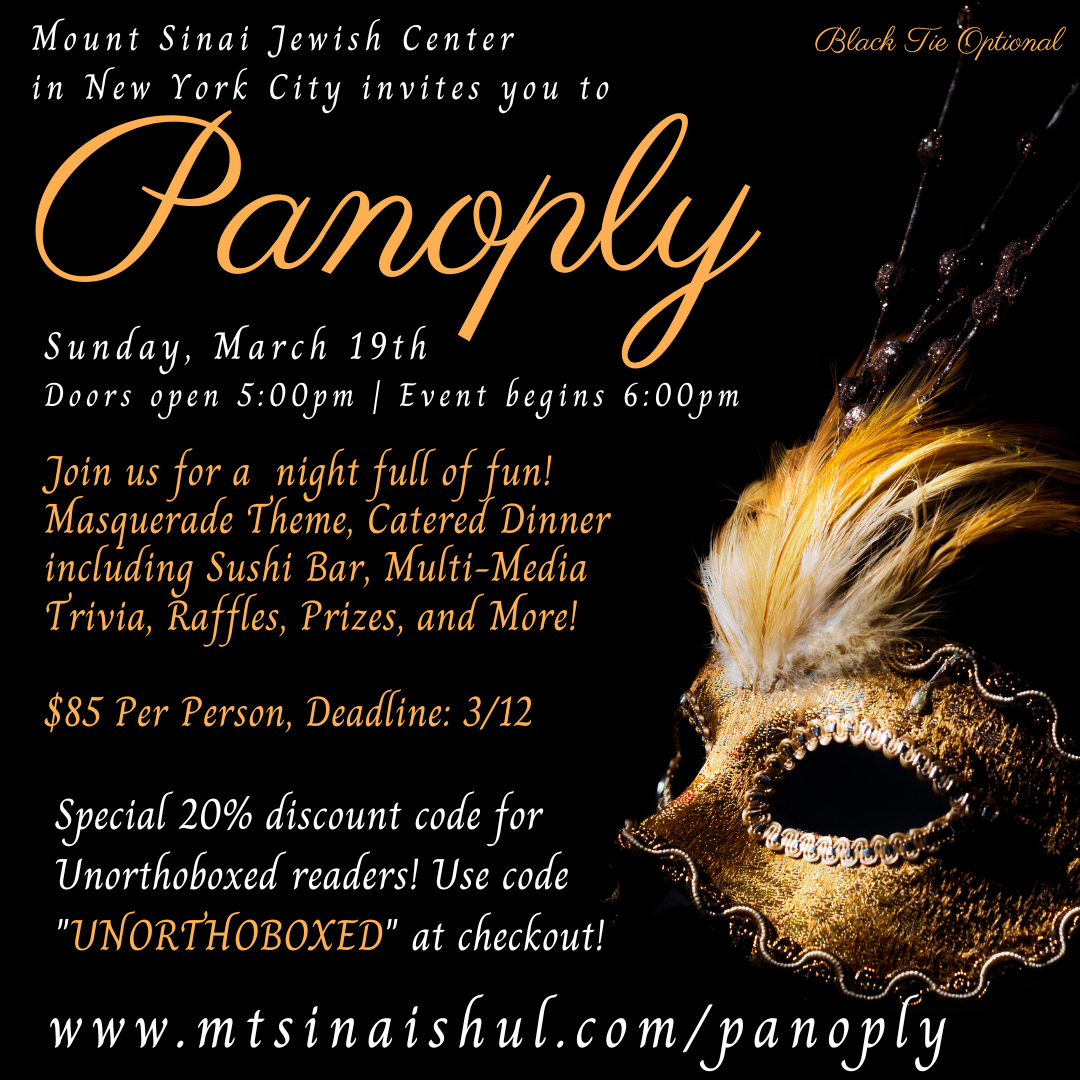
Kumzitz and Laugh
Written by Yaffi Lvova, RDN
In the darkest recesses of the human mind, in a place so heavy with shadow it seems impossible for a pinprick of light to shine through, a spark exists. That tiny ray seems like a direction, a point of promise, a simple moment of relief from the reality of the world reflected in the dark.
As Jews, we have been the masters of this light. Each time we have been suppressed, oppressed by the world outside, that light gets brighter and somehow pulls us through, coming out the other end to surprise the rest of the world with our persistence, our struggle, and our survival.
That light is our humor. Our armor.
Viktor Frankl, Austrian psychologist and Holocaust survivor, explains our humor as an instrument of salvation. “Humor was another of the soul’s weapons in the fight for self-preservation. It is well known that humor, more than anything else in the human make-up, can afford an aloofness and an ability to rise above any situation, even if only for a few seconds.”
The ability to laugh through impossible situations is what has always given us the capacity to almost seamlessly travel from “They tried to kill us” to “We won” (and then on to the delicious punchline.) This unique self-preservation method keeps us here today after so many nations have attempted to annihilate us.
We are here. We are laughing. Want a donut?
Humor is deep in the Jewish DNA. That’s what A.J. Jacobs says. A.J. chose a life of immersive journalism to combat a boring childhood. “I had to create my own material.” His brand of humor often makes him his own oppressor. Whether living the Bible literally or reading the entire Encyclopedia Britannica, A.J. reverts to that corner of his neshama–the one reserved for life-sustaining humor. He said in an interview with UNORTHOBOXED that humor is necessary for both learning and healing the world – both essential Jewish values.
A.J. Jacobs says that humility is also a great Jewish value. We can own our place in society, and from there we can effectively “punch up,” taking down the powerful by poking fun at them.
“Thank God there is humor to see us through. It’s like a life raft.”
Jews have been the target of destruction since time immemorial. But much of the research done on the cross-section of humor and survival relates to the Holocaust. American actor and director Rob Reiner said, “There is nothing funny about the Holocaust, there is nothing funny about it. But survival and what it takes to survive, there can be humor found in that.” His father, Carl Reiner, an American actor, stand-up comedian, director, screenwriter, and author agrees, saying that if you’re a funny person, you’re funny whether you’re comfortably at home or in the camps.
How has this kept us afloat throughout the generations? Unsurprisingly, there is a whole entry on satire in the YIVO Encyclopedia. “One of the foundations of satirical creation is the nicety, the convention of finding pleasantness in the ugly and repulsive.” But why the need for the ugly and repulsive? It’s the constant push and pull between tradition and modernity, comfort and creation, culture and autonomy. “Jewish satire evolved in a hostile environment and has been involved in a never-ending confrontation between the world of traditional beliefs and views on the one hand and the dynamic milieu of European humanism, with all its trends and periods, on the other hand.”
It’s been said that Jewish humor is one of the most significant genres of Jewish writing, whether it’s found in Hebrew, Yiddish, or Ladino. An adversary will rise up to try and eliminate us in every generation, nu? We learned pretty quickly that the most effective armor was our humor. It’s between belly laughs where we find space to create community and resilience. We find solace in mocking the Oppressor of the Month. (Wow that sounds so much cuter when Baskin Robbins does it).
Etgar Keret, Israeli writer, says, “Humor is a way of dealing with an unbearable reality. It’s a way of testing. It’s a way of keeping your dignity… It’s a way of saying ‘I’m still alive.’”
Most people need time between the horrific event and the laughter, but not actor Gilbert Gottfried. “I always heard that humor is tragedy plus time. I always felt like, why wait?”
Why wait, indeed? Why wait around when things are dark? Why think about the world and where things are going, contemplating your pupik in silence? Why not break up the time by communing with some comedy?
Things are a new shade of dark out there these days. The internet has provided connection, for better and for worse. And here we are, as expected, simultaneously the target for oppression and the venue for a virtual babka.
And just as in the past, we find our shining stars, bringing humor and community to the dejected masses. The newest humorists use the available technology to access an audience much wider than ever before.
In an exclusive interview with UNORTHOBOXED, Jew Who Has it All (JWHIA) discussed her one-year-old platform, now primarily on Mastodon. JWHIA celebrates an alternate universe, one in which the majority of the United States population is Jewish.
In her world, there is a Jewish hegemony to mirror and mock the Christian hegemony under which we actually live. (OK I didn’t know either. Britannica.com: “The term hegemony is today often used as shorthand to describe the relatively dominant position of a particular set of ideas and their associated tendency to become commonsensical and intuitive, thereby inhibiting the dissemination or even the articulation of alternative ideas.”) JWHIA began in November 2021, but went viral with a farcical account of Christmas, 2021. Then she really hit a nerve with her Easter series.
There are some who don’t understand this brand of satire. JWHIA says, “Sometimes people wander in and don’t know where they are.” For many others, this collective giggle is an essential form of validation and connection.
JWHIA, the twisted tour guide showing us all a life that’s a little bit nicer (to us, anyway), didn’t think her material would last longer than a week. A year later and she is still going strong. Other people began to contribute ideas and even characters to the storyline.
Unexpectedly, those from other minorities joined in the fun, saying, “I see my life in this account.” JWHIA relishes that point, saying that we as Jews make up 2% of the US population. That doesn’t sound like much, but it’s twice the population of each Muslims, Hindus, or Buddhists in the US. We have a responsibility to use that voice.
While JWHIA brings validation to Jews who might feel isolated in their identity, she is careful to avoid mocking actual theology or religious beliefs. The sweet spot for this satire is the stuff Christians believe is secular: bunnies and eggs for Easter, Christmas stockings and ornaments.
Don’t put down your phone just yet. Here comes Miriam Anzovin and her feminist hot takes on the Daily Daf. She holds no punches, believing that laughter and learning get us through difficult times. Why not combine them? And then go viral? And now we all have strangers at the grocery store asking us questions about the Talmud!
Miriam says, “Studying Talmud is my seven-year middle finger to antisemites.” Miriam’s videos, on TikTok at @miriamanzovin, are hilarious, educational, and spicy. No really. Grab a glass of milk because water won’t cut it. (That’s short for heads up on the language.)
Miriam started her channel due to COVID isolation. She had been through a lot in her private life and needed to create that small ray of hope. “Laughter is the only way I’ve struggled through the pandemic. So I am so blessed to be able to give other people a laugh too.”
Back in time we go to Terezin, a concentration camp thirty miles north of Prague. There were many famous Czech cabaret actors in Terezin. They would put on shows to lift the spirits of the other prisoners and maybe escape life for a moment themselves. This ended up working against them as videos of these plays were circulated as propaganda, an attempt to prove the camps were livable.
Over in Auschwitz, you could find some laughs behind the mail barracks. Mother-in-law jokes were popular. Here the guards encouraged these performances, but for different reasons. Maybe they kept the prisoners subdued, or maybe the guards themselves sought the momentary relief of laughter.
To borrow an outside quote, the Vietnamese Buddhist monk Thich Nhat Hanh once said, “Sometimes your joy is the source of your smile, and sometimes your smile is the source of your joy.” If you’re buried in the proverbial muck and can’t even write a few good lines of comedy, tap into someone else’s for a moment. Check out “laughter yoga” on YouTube or hit up a clean comedy station on Pandora or Spotify. You know what? I’ll start you off. Here is one of this writer’s favorites, the Salt & Pepper Diner by comedian John Mulaney.
“The attempt to develop a sense of humor and to see things in a humorous light is some kind of a trick learned while mastering the art of living.” ~Viktor Frankl

It’s between belly laughs where we find space to create community and resilience.
Related Articles
Related
Is it OK to Pray at a Grave?
“I am going to the grave of Rabbi Meir the miracle worker, to pray that I find my lost wedding ring.” “I am going to the Amuka, the grave of Yonatan Ben Uzi’el, to pray for a shidduch (marriage partner).” “I am going to visit the grave of Rabbi Gedalya Moshe of...
How Jewish Parents Can Filter Television for Children
“Oy gevalt!” I desperately exclaimed, right after checking on my toddler. I had briefly left my daughter in our living room’s playpen listening to the Beauty and the Beast soundtrack playing on the television, so that I could fold laundry. “What is this?” I...
Dealing with Winter Doldrums
Despair. Hopelessness. Feelings of low self-worth. Lack of productivity. These words and phrases may describe the thoughts of someone who is clinically depressed. But, they can also describe the moods of many people during the winter season and on rainy days. In much...

